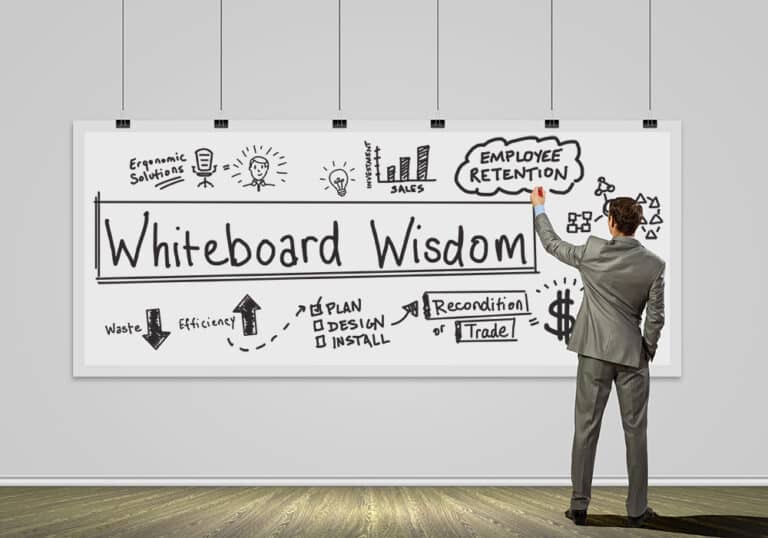In the modern workplace, many generations, from Baby Boomers to Gen Z, navigate daily tasks, bringing diverse perspectives, work habits, and technological proficiencies. This generational melting pot often leads to stereotypical catchphrases and mild jokes – from “kids these days” to the retort “OK, boomer.” In this blog, we critically examine the various generations cohabiting in today’s workplaces and explore the practical implications their differences and similarities have on teamwork, leadership, and workplace culture.
Portrayal in the Media
It’s impossible to go through a week without encountering some form of media that negatively depicts one generation or another. Whether news articles, social media platforms, or viral memes—the messaging is omnipresent, intensifying the generational divide. With its unyielding pace of change, the digital era has not only introduced Millennials to the mix but has also sharpened the focus on intergenerational dynamics within the workforce. Media headlines such as “Millennial workers have become disillusioned with tech culture – and their jobs” from Fast Company showcase that it is not specific to one generation; the sentiment could easily apply to Baby Boomers, Gen X, or Gen Z.
This raises the question—do these headlines inadvertently validate the stereotypes they portray, reinforcing them? Such content often overlooks individual experiences and contributions, implicitly endorsing assumptions without rigorous scrutiny. It’s clear that while these stereotypes may easily catch the public’s eye, they deserve a closer examination to determine their accuracy and impact on workplace culture.
Generations in the Workplace
Organizations are at a tipping point regarding generational perspectives in the workplace. Practical wisdom dictates steering clear of definitive generational labels that might entangle a company in the snares of age discrimination claims or foster an environment ripe for bias. The data points to the peril of aligning workplace policies with stereotypes that may resonate with public sentiment but stand on shaky empirical ground.
As advocates for diversity and inclusion exert more influence, businesses are urged to dismantle the generational framework in favor of individual-focused strategies. These strategies should accentuate personal capability and potential, disentangled from the year of one’s birth. More than navigating through a legal minefield, it’s about nurturing a corporate culture that values each employee’s unique narrative and professional journey, setting a precedent of respect and equality that transcends the generational divide.
Widespread misconceptions about generational differences can undermine the success of teams and entire organizations. By categorizing individuals based on age and ingraining generational stereotypes, we inadvertently fuel intergroup conflict, fostering an environment where in-group favoritism and out-group exclusion become prevalent. This can severely impact group dynamics, leading to a breakdown in collaboration and communication.
It is crucial to note that the rich benefits of diversity arise from a blend of individual experiences and perspectives—a truth often overshadowed by broad generational assumptions. If organizations persist in formulating policies based on these flawed stereotypes, they risk perpetuating inequity and forfeiting the collective innovation born from embracing a genuinely diverse workforce. By eschewing generational labels and focusing on each person’s individual merits and skills, companies can foster a more inclusive culture and bolster their potential for success.
Organizations must reject biases
In line with this, organizations must actively reject generational biases and avoid falling into the trap of stereotypes. Take, for example, the presumption that Gen Z employees are inherently more technologically adept. While they may have grown up in a digital world, measuring and assessing technical skills for talent acquisition should rely on actual competencies, not age-based assumptions.
Similarly, the idea that Millennials prioritize work-life balance while Baby Boomers are singularly dedicated to their work raises the question—if workplace flexibility is offered unequally across generations, how might that fuel discord? Assertions that Gen X employees prefer to work independently could wrongly justify offering them a less collaborative onboarding, potentially undermining the collective onboarding experience and integration into organizational culture. Moreover, the belief that older staff are less capable of learning new skills can insidiously damage an established learning culture, glossing over individuals’ genuine interests or abilities. To maintain unity and prevent divisiveness, organizations should:
- Educate staff on recognizing and addressing generational stereotypes.
- Model inclusive leadership that welcomes conversations about individual differences.
- Cultivate collaboration and encourage programs like knowledge sharing and reverse mentorship.
- Ensure HR offerings effectively cater to all employees, regardless of age.
By doing so, companies can foster a workplace culture that genuinely respects individual narratives, thus strengthening their pursuit of strategic goals and fostering an inclusive workplace for all employees.
Organizations must discern wisely in their approach towards generational discourse, recognizing its ubiquity yet engaging with it critically. There’s value in being informed, but it is vital to practice discernment, sifting through the content with a critical eye toward the assumptions it perpetuates.
Embracing Individuality over Generalization in Workplace Culture
Rather than guiding organizational decisions with generational generalizations, leaders should acknowledge that an individual’s identity encompasses multifaceted dimensions that extend far beyond their age group. This understanding minimizes risks and maximizes the appreciation of diverse employee narratives.
Encouraging others to avoid defaulting to the generational trap is also key; we can shift from assumption-based to evidence-based thinking by prompting critical questioning. This transition is essential and made smoother with resources, such as training on allyship, embedding inclusion into organizational culture, and designing employee workspaces that align with comprehensive strategies, free from generational stereotypes.
Thus, our recourse for a better workplace lies in deliberate unlearning and relearning—celebrating individuality, fostering connections, and designing policies that respect and reflect the complex tapestry of identities within our teams.



